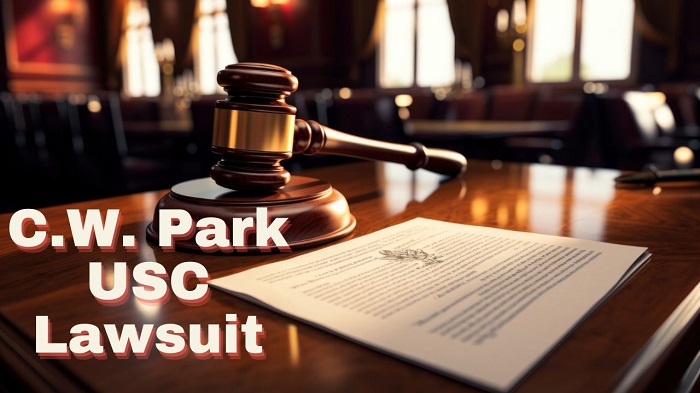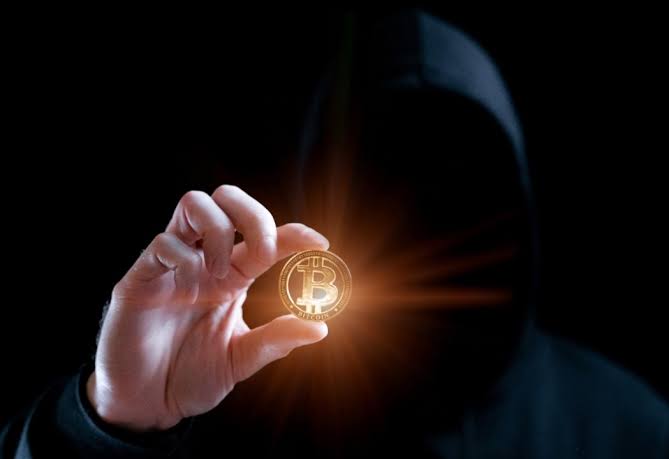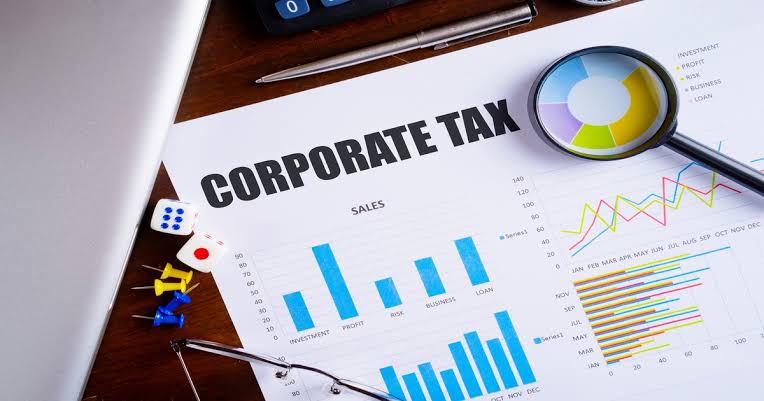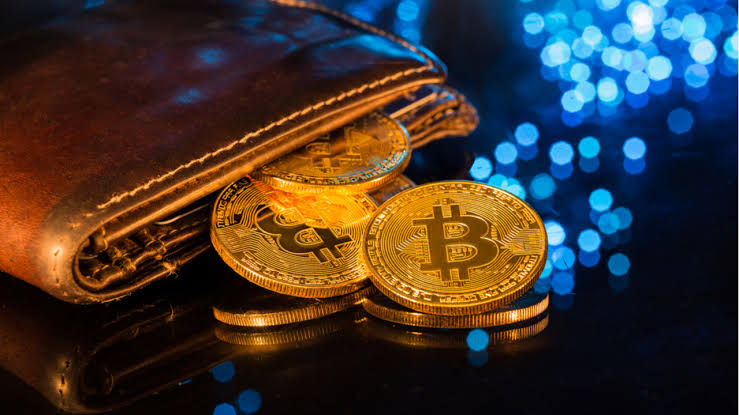Introduction
Overview of the C.W. Park USC Lawsuit
The C.W. Park USC lawsuit has garnered significant attention within the academic and legal communities. This case involves serious allegations of misconduct and has raised important questions about the practices and ethics within higher education institutions. Understanding the intricacies of this lawsuit is crucial not only for those directly involved but also for the broader public, who can glean insights into how universities handle internal disputes and legal challenges.
Importance of Understanding the Case
This lawsuit is not just a legal battle; it represents a pivotal moment for the University of Southern California (USC) and potentially sets a precedent for how similar cases might be handled in the future. By examining this case in detail, we can gain a better understanding of the dynamics between faculty and administration, the legal frameworks governing academic institutions, and the broader implications for higher education.
Background of the Case
Who is C.W. Park?
Professional and Academic Background
C.W. Park is a distinguished academic known for his contributions to the field of marketing and business. Holding a prestigious position at C.W. Park USC Lawsuit, Park has been instrumental in various research initiatives and has earned a reputation for his scholarly work. His academic credentials are impressive, with numerous publications in top-tier journals and a significant impact on his field.
Contributions to USC
At USC, Park has played a critical role in advancing the university’s academic mission. He has mentored countless students, contributed to important research projects, and helped elevate the institution’s standing in the academic community. His involvement in high-profile research and his leadership within the department have been key to C.W. Park USC Lawsuit reputation for excellence.
Overview of USC (University of Southern California)
History and Reputation
The University of Southern California, founded in 1880, is one of the oldest private research universities in California. Known for its rigorous academic programs and influential alumni, USC has built a strong reputation in various fields, including business, cinema, and engineering. The university’s commitment to research and innovation has positioned it as a leading institution in higher education.
Recent Controversies and Legal Issues
Despite its esteemed status, USC has faced numerous controversies in recent years. From admissions scandals to allegations of misconduct, the university has been under intense scrutiny. These incidents have not only affected its public image but also led to significant legal battles, including the current lawsuit involving C.W. Park USC Lawsuit
Timeline of Events
Initial Allegations
Date and Nature of Allegations
The allegations against USC, brought forward by C.W. Park USC Lawsuit first surfaced in [specific date]. Park claimed that the university engaged in discriminatory practices and breached various contractual obligations. These allegations sent shockwaves through the academic community, prompting an internal investigation and widespread media coverage.
Filing of the Lawsuit
Key Dates and Legal Filings
Park officially filed the lawsuit on [specific date], outlining a series of grievances against USC. The legal documents highlighted multiple instances of alleged misconduct, including breach of contract, discrimination, and retaliation. These filings set the stage for a protracted legal battle, drawing attention from legal experts and the public alike.
Key Developments
Major Milestones in the Case
Since the lawsuit’s inception, several key developments have unfolded. These include preliminary hearings, the submission of evidence, and testimonies from various witnesses. Each of these milestones has shaped the trajectory of the case, influencing public perception and the strategies employed by both sides.
Court Hearings and Decisions
The court hearings have been critical in determining the direction of the lawsuit. Judges have made several important rulings on procedural matters and the admissibility of evidence. These decisions have had a significant impact on the progress of the case, with each hearing bringing new insights and revelations.
Legal Basis of the Lawsuit
Claims Made by C.W. Park
Specific Allegations
C.W. Park’s lawsuit is built on a foundation of serious allegations against USC. Park claims that the university engaged in discriminatory practices based on race and age, violated contractual agreements, and retaliated against him for voicing concerns. These allegations are supported by a range of evidence, including emails, internal documents, and witness testimonies.
Evidence Presented
To bolster his claims, Park has presented substantial evidence, including detailed records of communications with university officials. This evidence aims to demonstrate a pattern of behavior that supports his allegations. Expert witnesses have also provided testimonies to corroborate Park’s claims, adding weight to his case.
USC’s Defense
Key Arguments
USC has mounted a vigorous defense against Park’s allegations. The university contends that its actions were lawful and justified, denying any discriminatory practices or contractual breaches. USC’s legal team has argued that Park’s claims lack merit and that the evidence presented is insufficient to support his allegations.
Counter-Evidence and Witnesses
In its defense, USC has introduced counter-evidence aimed at discrediting Park’s claims. This includes testimonies from other faculty members and administrators who refute Park’s allegations. The university has also highlighted its policies and procedures to demonstrate compliance with legal and ethical standards.
Key Figures Involved
Attorneys for C.W. Park
Profiles and Legal Background
C.W. Park is represented by a team of experienced attorneys specializing in employment law and higher education disputes. These lawyers have a track record of successfully handling complex cases and bring a wealth of expertise to Park’s defense. Their strategic approach and legal acumen are central to Park’s case.
USC’s Legal Team
Notable Lawyers and Their Roles
USC has enlisted a formidable legal team to defend against Park’s allegations. This team includes top-tier attorneys known for their proficiency in employment law and institutional defense. Their role is to protect the university’s interests and navigate the legal complexities of the case.
Judges and Legal Authorities
Profiles of Judges Presiding Over the Case
The judges presiding over this case are experienced jurists with extensive backgrounds in handling complex litigation. Their decisions on procedural matters and evidence admissibility have been pivotal in shaping the lawsuit’s trajectory. Understanding their judicial philosophy provides insights into potential outcomes.
Impacts on C.W. Park
Professional Impacts
Effects on Career and Reputation
The lawsuit has had profound implications for C.W. Park’s professional life. The public nature of the case and the allegations involved have affected his career prospects and reputation within the academic community. Despite these challenges, Park continues to advocate for his rights and seeks justice through the legal system.
Personal Impacts
Emotional and Psychological Effects
Beyond the professional ramifications, the lawsuit has taken a personal toll on C.W. Park. The stress of legal proceedings, coupled with public scrutiny, has impacted his emotional and psychological well-being. This aspect of the case highlights the broader human cost of prolonged legal battles.
Impacts on USC
Institutional Impacts
Effect on University Policies and Practices
The lawsuit has prompted USC to reevaluate its policies and practices, particularly those related to faculty treatment and discrimination. The university has undertaken internal reviews and implemented changes aimed at preventing similar issues in the future. These efforts reflect a commitment to addressing the underlying problems highlighted by the lawsuit.
Public Perception
Media Coverage and Public Opinion
Media coverage of the lawsuit has significantly influenced public perception of USC. The case has been widely reported, with varying perspectives on the allegations and the university’s response. Public opinion is divided, with some supporting Park’s claims and others defending USC’s actions. This divide underscores the complexity of the issues at hand.
Legal and Ethical Considerations
Legal Precedents
Relevant Case Law
The C.W. Park USC lawsuit draws on a rich body of legal precedents related to employment law, discrimination, and contract disputes. These precedents provide a framework for understanding the legal arguments and potential outcomes of the case. Examining similar cases helps contextualize Park’s allegations and USC’s defense.
Ethical Implications
Academic and Professional Ethics
Beyond the legal dimensions, the case raises important ethical questions about the conduct of universities and their treatment of faculty. Issues of fairness, transparency, and accountability are central to the ethical considerations of this case. The outcome of the lawsuit could set important ethical standards for higher education institutions.
Public and Media Reactions
Media Coverage
Analysis of News Reports and Articles
Media outlets have extensively covered the lawsuit, offering diverse perspectives on the allegations and legal proceedings. Detailed analysis of news reports reveals how different media portray the case, influencing public understanding and opinion. This coverage plays a crucial role in shaping the narrative around the lawsuit.
Public Opinion
Social Media Reactions and Public Commentary
Public reaction to the lawsuit has been intense, with social media platforms serving as a battleground for differing views. Supporters of C.W. Park use social media to amplify his claims and call for justice, while defenders of USC argue for the university’s integrity. This digital discourse reflects broader societal attitudes towards issues of discrimination and institutional accountability.
Comparisons to Similar Cases
Previous Lawsuits Involving Universities
Notable Similar Cases
The C.W. Park USC lawsuit is not an isolated incident; it is part of a broader pattern of legal disputes involving universities. Previous cases, such as [specific case names], provide valuable comparisons. These cases offer insights into common issues and legal strategies, helping to contextualize Park’s lawsuit.
Outcomes and Precedents
How Similar Cases Were Resolved
Examining the outcomes of similar cases sheds light on potential resolutions for the Park lawsuit. Some cases resulted in settlements, while others led to significant legal reforms. Understanding these precedents helps predict possible outcomes and their implications for both Park and USC.
Current Status of the Lawsuit
Latest Court Rulings
Recent Developments
The lawsuit is currently at a critical juncture, with recent court rulings shaping its direction. These developments include decisions on key motions, the admissibility of evidence, and procedural matters. Staying informed about these rulings is essential for understanding the current status and
Upcoming Hearings and Potential Outcomes
Looking ahead, the lawsuit faces several important milestones and potential outcomes. Upcoming hearings will address critical issues, such as the validity of evidence and the scope of damages. The outcome of these hearings will influence the trajectory of the case and may pave the way for settlement negotiations or a trial.
Expert Opinions
Legal Experts
Analysis by Prominent Lawyers
Legal experts have weighed in on the C.W. Park USC lawsuit, offering valuable insights into its legal complexities and potential ramifications. These experts analyze the case from various perspectives, highlighting key legal arguments and predicting possible outcomes. Their expertise helps decipher the intricacies of the lawsuit for the broader public.
Academic Perspectives
Views from University Faculty and Administrators
University faculty and administrators provide unique insights into the lawsuit’s implications for higher education. Their perspectives encompass academic freedom, faculty rights, and institutional accountability. By engaging with these voices, we gain a deeper understanding of the broader context in which the lawsuit unfolds.
Potential Outcomes
For C.W. Park
Possible Legal Remedies
The outcome of the lawsuit holds significant implications for C.W. Park. If successful, Park may be entitled to various legal remedies, including monetary damages, reinstatement, or changes in university policies. Conversely, an unfavorable outcome could have long-lasting consequences for Park’s career and reputation.
For USC
Potential Institutional Changes
USC also faces potential outcomes that could impact its operations and reputation. A favorable ruling for USC may vindicate the university’s actions and reaffirm its commitment to legal and ethical standards. However, an adverse ruling could necessitate institutional changes and damage USC’s standing in the academic community.
Broader Implications
Impact on Higher Education
Changes in University Policies Nationwide
The outcome of the C.W. Park USC lawsuit could reverberate throughout the higher education landscape, prompting universities nationwide to reassess their policies and practices. Issues of faculty rights, discrimination, and institutional accountability are central to this discussion. By addressing these challenges head-on, universities can foster a more equitable and inclusive academic environment.
Legal Implications
Future Lawsuits and Legal Reforms
The lawsuit sets important legal precedents that could influence future litigation in higher education. Legal reforms may be necessary to address systemic issues highlighted by the case, such as discrimination and retaliation. By learning from the lessons of this lawsuit, universities can proactively mitigate legal risks and uphold their commitment to fairness and justice.
Conclusion
In conclusion, the C.W. Park USC lawsuit represents a critical juncture in the intersection of academia and the law. The allegations, legal arguments, and broader implications of this case underscore the complexities inherent in higher education institutions. By examining the case in detail, we gain valuable insights into the challenges facing universities and the pursuit of justice in academia.
FAQs
- What are the main allegations in the C.W. Park USC lawsuit?
- The main allegations include discrimination, breach of contract, and retaliation by USC against C.W. Park.
- How has USC responded to the lawsuit?
- USC has mounted a vigorous defense, denying the allegations and asserting its compliance with legal and ethical standards.
- What is the current status of the lawsuit?
- The lawsuit is ongoing, with recent court rulings shaping its progression. Upcoming hearings will address critical issues in the case.
- How could the outcome of this lawsuit affect other universities?
- The outcome could set important legal precedents and prompt universities to reassess their policies and practices.
- Who are the key figures involved in the case?
- Key figures include C.W. Park, USC officials, attorneys for both parties, and the judges presiding over the case.
- What legal precedents might influence the outcome of this lawsuit?
- Previous cases involving discrimination, breach of contract, and retaliation may inform the court’s decision.
- What has been the public and media reaction to the case?
- Public and media reactions have been varied, with differing opinions on the allegations and legal proceedings.
- How has the lawsuit affected C.W. Park personally and professionally?
- The lawsuit has taken a toll on Park’s personal and professional life, impacting his reputation and well-being.
- What are the broader implications of this lawsuit for higher education?
- The lawsuit highlights issues of faculty rights, discrimination, and institutional accountability in higher education.
- What might be the next steps in the legal process?
- The next steps include upcoming hearings, potential settlement negotiations, or a trial, which will shape the course of the lawsuit.



